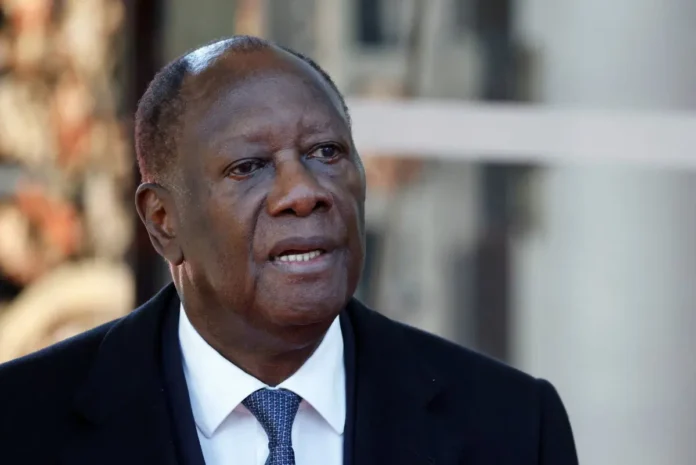Octogenarian President of Ivory Coast, Alassane Ouattara, said Tuesday he will seek a fourth term in the West African country, as tensions rise over the exclusion of many heavyweight opposition candidates.
President Ouattara’s declaration comes a few weeks after his counterpart in Cameroon, Paul Biya, 92, made a similar announcement to run for an eighth term as president of his country.
Ouattara, 83, who has led Ivory Coast since 2011, had earlier been officially nominated by his ruling Rally of Houphouetists for Democracy and Peace (RHDP) party as its candidate for the October 25 election.
“I am a candidate because the constitution of our country allows me to run for another term and my health permits it,” he said, adding that the world’s top cocoa producer was “facing unprecedented security, economic, and monetary challenges, the management of which requires experience.”
Critics of Ouattara accuse him of tightening his grip on power and strongly oppose him running again.
The opposition has accused the authorities of excluding their candidates through legal means, but the government insists the judiciary acts independently.
The two main opposition parties have launched a joint campaign to demand the reinstatement of their barred leaders ahead of the presidential election.
The alliance brings together the African People’s Party of Ivory Coast (PPACI) — led by former President Laurent Gbagbo — and the Democratic Party of Ivory Coast (PDCI), the country’s largest opposition force, headed by former international banker Tidjane Thiam.
Gbagbo, his former right-hand man Charles Blé Goudé, and ex-Prime Minister Guillaume Soro have been struck from the electoral register due to criminal convictions.
Thiam was also excluded by the judiciary over nationality issues.
Ouattara worked at the International Monetary Fund and the West African regional bank BCEAO and entered politics when Ivory Coast’s founding president, Félix Houphouët-Boigny, appointed him to chair a body on economic recovery during an economic crisis.
As Houphouët-Boigny’s health worsened, Ouattara assumed increasing responsibility for overseeing the country’s affairs.
When the ailing president died in December 1993, Ouattara was embroiled in a brief power struggle with Henri Konan Bédié, the speaker of parliament, and then left Ivory Coast to join the IMF.
In 1995, he joined the newly formed Rally of the Republicans (RDR) party and planned to run as their presidential candidate.
But he was barred from doing so following new laws requiring both parents of a candidate to be of Ivorian birth, and that the candidate must have lived continuously in Ivory Coast prior to an election.
He was barred from the 2000 election on the same grounds. A failed coup two years later led to a low-level civil war, leaving the country divided into a rebel-held, predominantly Muslim north — where Ouattara drew much of his support — and a government-controlled, Christian-majority south.
Ouattara, who was subjected to violence during the unrest, left the country but returned to contest the 2010 election.
Then-President Gbagbo’s refusal to concede defeat to Ouattara led to another period of unrest, in which more than 3,000 people were killed, before Ouattara became president in 2011.
Gbagbo was acquitted on charges of crimes against humanity by the International Criminal Court in The Hague but still has a conviction in Ivory Coast stemming from the violent post-election crisis that ended his rule.
Critics have already questioned the legality of Ouattara’s third term, as the constitution limits presidential terms to two.
The opposition boycotted the 2020 vote, and Ouattara won by a landslide.

